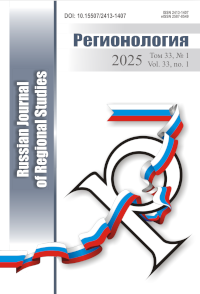И. Г. Коленченко. Значение и развитие феномена духовного стиха
И. Г. Коленченко
Значение и развитие феномена духовного стиха
И. Г. Коленченко, аспирант Российской академии музыки им. Гнесиных (г. Москва)
«Духовный стих» в русской культуре представляет собой сложное явление, затрагивающее различные области отечественной культуры и тесно связанное с мировосприятием русского человека. Духовный стих как неотъемлемая часть фольклора оказал большое влияние на формирование народной духовной культуры. Понятие «духовный стих» — определение комплекса произведений народного творчества, объединенных высшим художественным выражением народной веры. Термин «стих» выделяет этот жанр среди других фольклорных произведений (песен, былин и т. д.). Кроме того, он ассоциируется с письменной, книжной культурой и поэтическими жанрами.
В отличие от жанров, имеющих строгое закрепление в ритуале, духовный стих изначально вовсе не предназначен для богослужебного исполнения и относится к внелитургическим жанрам. Он существовал практически во всех сферах жизни: от церковной до народной и светской. Исследователи этого жанра высказывают различные мнения относительно времени его возникновения, динамики распространения и эволюции. Существует несколько гипотез относительно времени возникновения духовных стихов: от дохристианского периода до XVII в. Изначально духовные стихи бытовали среди калик перехожих — особой социальной группы, просуществовавшей с периода Средневековья до начала XX в. Они вобрали в себя канонические и народно-крестьянские представления о христианстве, старообрядческое и сектантское понимание православия.
В настоящее время духовные стихи также бытуют в христианских общинах. Основные свойства духовного стиха — содержание текста религиозной направленности; форма бытования, несущая в себе закономерности неразрывного восприятия слова и музыки; распространение в разных культурных средах; направленность на восприятие христианских основ различными социальными группами; эмоциональность, выражающаяся в большой силе воздействия на слушателей и исполнителей.
Применение комплексного подхода к изучению духовных стихов призвано обеспечить объективность в их понимании. Большое значение этих стихов в формировании внутренней духовности человека сделало этот жанр привлекательным не только для собирателей, исследователей, фольклористов, но и для отечественных композиторов и исполнителей XIX—XXI вв.
In the framework of the first one — «Musical Culture of the Finno-Ugric Peoples: Problems in Studies, Preservation and Succession) functioning of the Finno-Ugric musical culture in the modern socio-cultural space, activity of the Mordovian diaspora in Moscow in the sphere of traditional culture preservation, sound ideal in the modern Setusk song tradition in the SouthEastern Estonia, symbolic Mordovian rite programme folk-tunes connected with the cults of the trees and the water, Mordovian song poetry and its connections with the Russian poetic culture, activity of B. S. Uritskaya as the founder of musical studies in Mordovia and ethno-musical plastic thinking of N. V. Kosheleva in the symphonic suite by S. D. Erzya sculptures «Women's Portraits» are considered.
The second one — «Folk Music in Modern Educational and Performing Practice» is devoted to the problems in the psychology of singers — bearers of song folklore in the modern conditions, application of adaptations, orchestrations, authors compositions of Mordovian composers in pedagogic practice in educational institutions of the republic, specificity of national singing arts of the Mordva and stage impersonation of the traditional singing culture of the Finno-Ugric peoples in the modern stage.
In the third block «Folklore Origin in the Composers Creative Work: Interpretation Problems» issues of the formation and the meaning of «spiritual verse» in the domestic musical culture, folklore and non-folklore stylish tendencies in vocal and chorus compositions of G. G. Vdovin and musical and poetic stylistics of song genre of the Mordovian folklore in the chorus work of Mordovian composers were presented.
The Finno-Ugric musical culture is an integrate phenomenon accumulating scientific, educational and creative potential. The importance of such discussions for the research of the processes of modern existence and development of people's musical culture, methods for its preservation and transformation in the modern composing, singing and educational practice is evident.
Panel «Musical Culture of the Finno-Ugric Peoples: Problems in Studies, Preservation and Succession»
On November 21, 2012 in Mordovia National Research State University in the framework of the All-Russian Scientific and Practical Conference with International Participation «Musical Culture of the Finno-Ugric Peoples: Problems in Studies, Preservation and Succession» a panel was organised. Its main objective was in the discussion of theoretic and practical problems connected with the existence of the musical folklore in the conditions of the poly-ethnic cultural space; issues in the national musical education and upbringing in the Finno-Ugric world; exchange of the positive experience in preservation and investigation of the cultural heritage of the Finno-Ugrians. Main trends in the work of the panel were integrated by three blocks.

All the materials of the "REGIONOLOGY" journal are available under Creative Commons «Attribution» 4.0
















